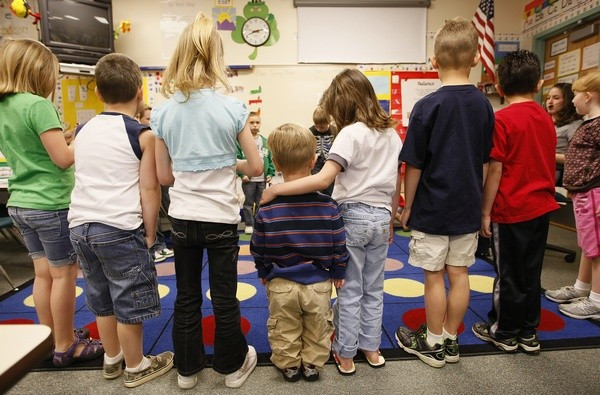Britain 'can and must do better' after trailing rich countries on child inequality

The UK is lagging behind smaller European countries like Denmark, Finland and Norway in tackling children's inequality, according to an Unicef report. The findings prompted the global agency for children to call for greater efforts from the government to bridge the gap between the rich and the poor.
The Unicef report, "Fairness for Children: A league table of inequality in child well-being in rich countries", studied the gap between children at the bottom and in the middle of the societal chain. The report considered four major parameters for studying inequality: income, educational achievement, self-reported health and life satisfaction.
It ranked 41 nations from the EU and the Organisation for Economic Co-operation and Development (OECD) on how they fared on these parameters.
UK report card
Britain was ranked seventh among the 41 countries in income inequality, with a 39.94% relative income gap and 9.3% child poverty rate. The relative income gap is based on the disposable incomes of households with children up to the age of 17 after adding benefits, deducting taxes and making an adjustment for the different sizes and compositions of households.
The country was ranked 25th out of 37 rich nations – behind countries like Chile, Poland, Romania, Slovenia and the US – for equality levels in children's reading, maths and science skills at the age of 15.
Britain is also falling short when it comes to providing health benefits to the poor, after being ranked 19th (out of 35) for health inequality. The report showed 21.4% of children report one or more health complaints every day in the UK. The relative health gap between rich and poor children in the UK was 28.87%.
Unicef reaction
Lily Caprani, Unicef's deputy executive director for the UK, urged the country to be "more ambitious" for its children as the disparity among rich and poor children was "damaging their lives and aspirations".
She said the UK "can and must do better", emphasising the need to urgently work towards the government's long-delayed childhood obesity strategy. "Taking children's rights seriously means acting with urgency to make sure no child is left behind," Caprani added.
Government response
In response to the report findings, a government spokesperson said: "We're working to eliminate child poverty and improving life chances for children and there are now 300,000 fewer children in poverty."
The National Living Wage scheme introduced by the government is aimed at "increasing the incomes of the lowest paid", the spokesperson added. The government is also working towards its free school meal scheme and is continuing to spend £80bn ($113bn) every year "to provide a safety net for those who need extra support".
Other findings
Denmark ranked in the top three based on all four parameters and made it to the top of the overall league table, with "comparatively low bottom-end inequality in each of the four domains of child well-being".
Finland, Norway and Switzerland share second place in the overall league table, faring well in all four domains.
Israel and Turkey were ranked lowest in the overall league table as they have "comparatively high bottom end inequality" in each of the four domains.
© Copyright IBTimes 2025. All rights reserved.





















